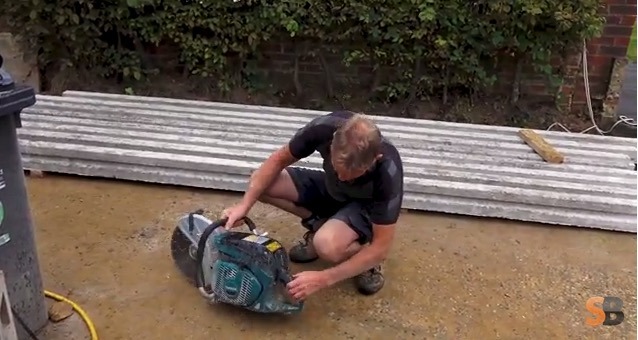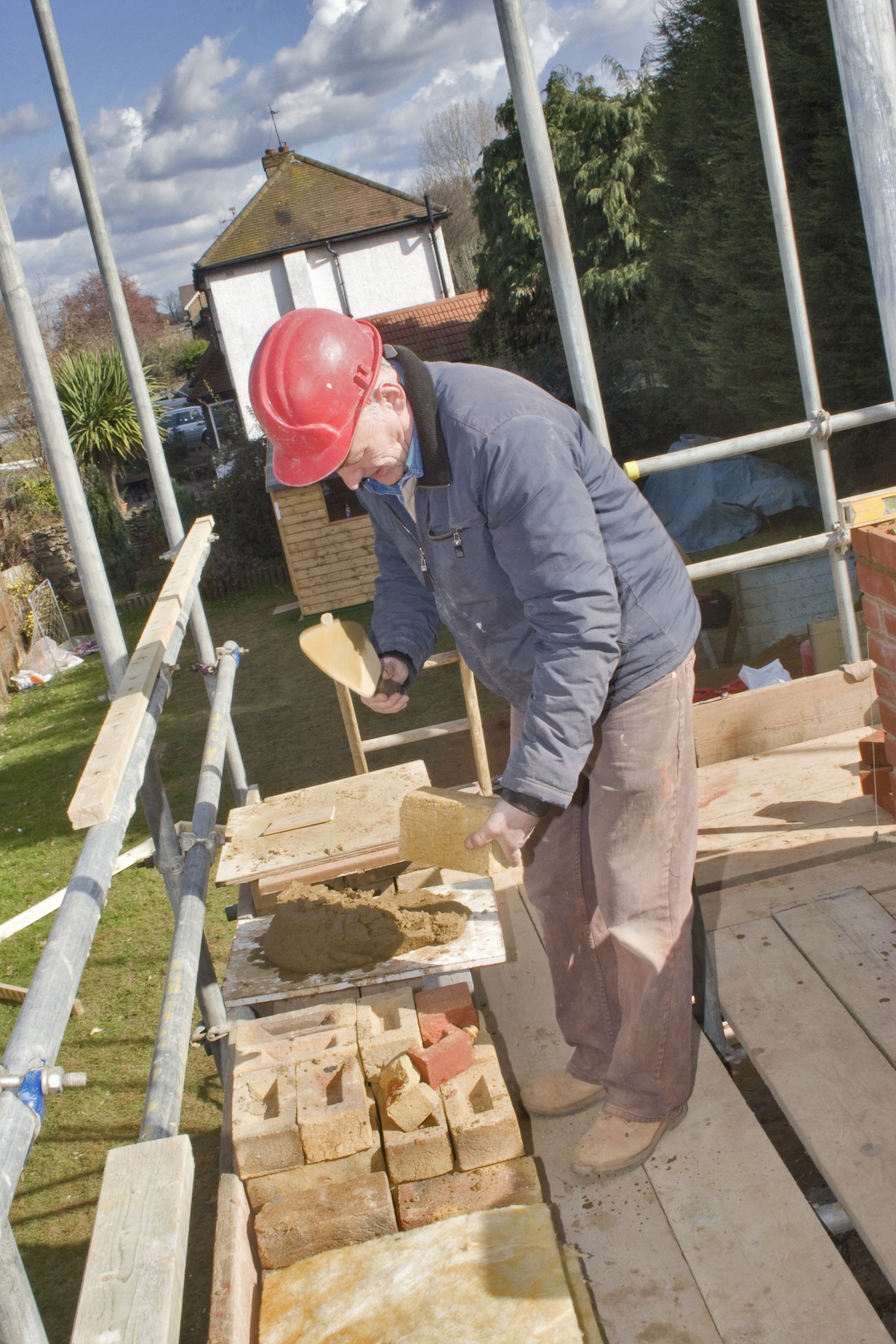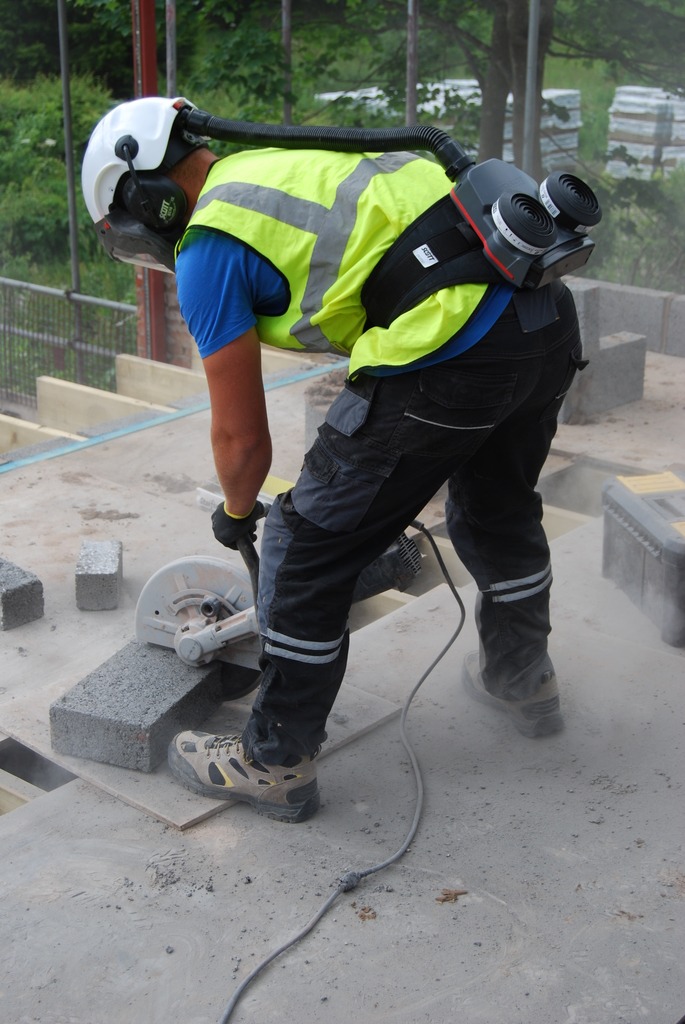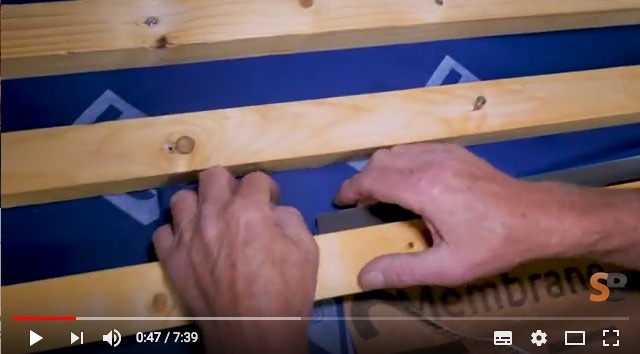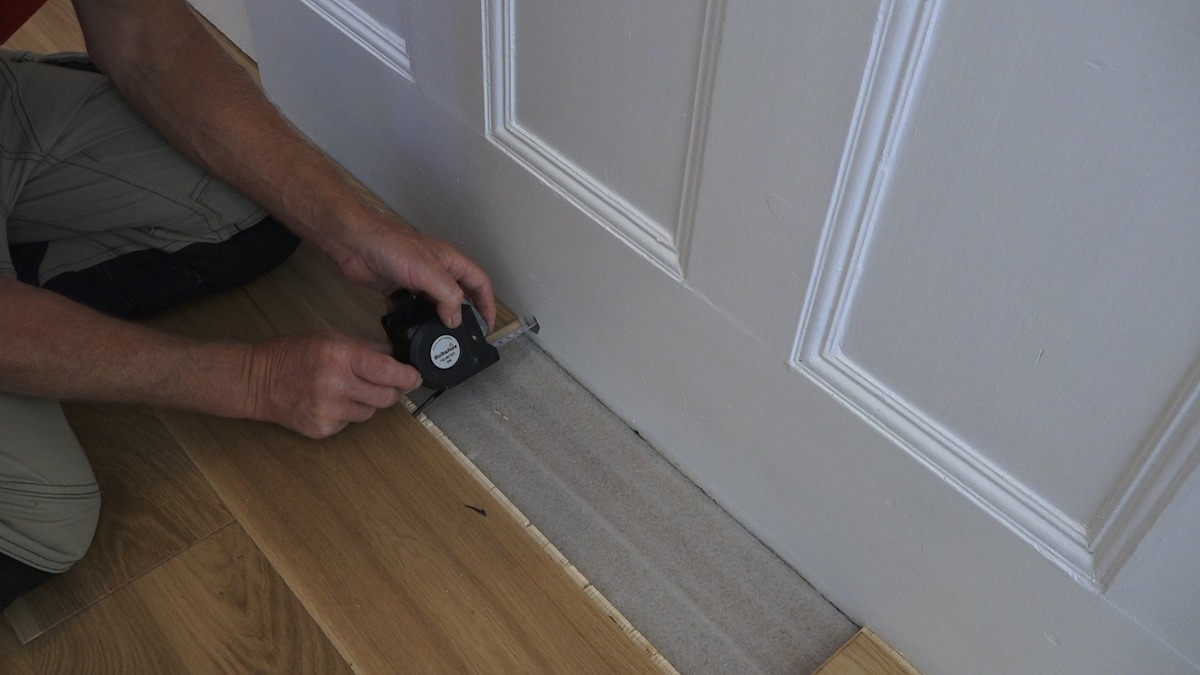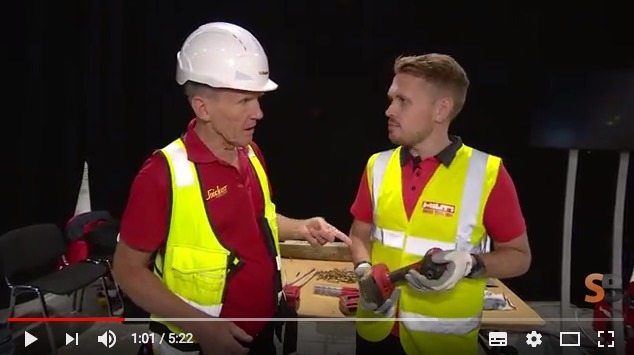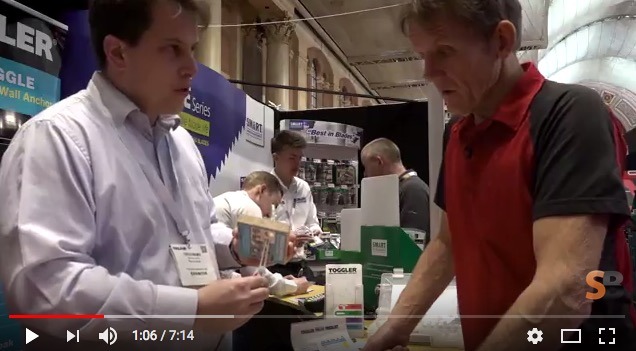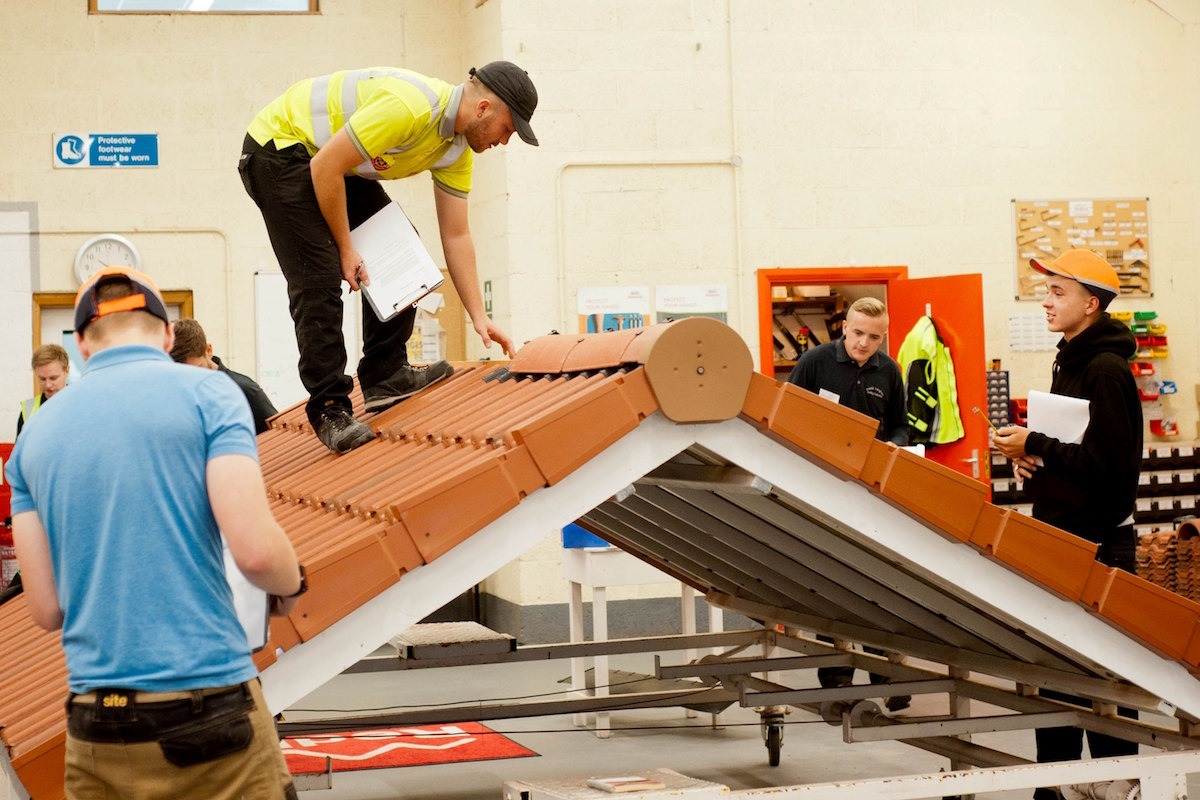Roger provides a demonstration of how to start your two-stroke engine the right way on your chainsaw, cut off saw or strimmer or leaf blower.
FMB Welcomes May’s Brave & Bold Stance on House Building
The Prime Minister is right to announce sweeping measures to enable councils to build a new generation of social housing and end the growing housing crisis, according to the Federation of Master Builders (FMB).
Theresa May has today managed to take a braver and bolder stance on house building than any Prime Minister of recent years
Commenting on Theresa May’s announcement that the Government will invest an additional £2bn in affordable housing, Brian Berry, Chief Executive of the FMB, said: “Despite the Prime Minister’s precarious political position since the General Election, Theresa May has today managed to take a braver and bolder stance on house building than any Prime Minister of recent years.
The private sector will continue to expand the number of new homes it builds, particularly so if the Government succeeds in its aim of removing barriers that hold back small scale house builders.
However, in the house building heyday of the 1950/60s, a healthy private sector was always complemented by significant levels of social house building.
Indeed, we have only ever built at the level we need to keep pace with demand when both the private and public housebuilding sectors have been firing on all fronts.
In the 1960s, for example, we were building around 400,000 homes per year and half of those were social housing.”
If councils can start to engage with smaller, local builders to deliver this new generation of council housing, it could further help to diversify the industry
Berry continued: “The Prime Minister’s plan is also an opportunity to help shape a stronger local house building industry. If councils can start to engage with smaller, local builders to deliver this new generation of council housing, it could further help to diversify the industry.
This would also boost the capacity of the private sector through the provision of more public sector work. Indeed, the increased use of small and medium-sized building firms will limit the problem of land banking, as this is something small builders simply don’t do.”
Berry concluded: “There do remain however, some significant roadblocks to the Prime Minister’s vision. Following Brexit, the serious shortage of skilled labour the construction industry is already dealing with will be exacerbated if it becomes much more difficult for EU tradespeople, who have come to play a crucial part in plugging the industry’s chronic skills gap, to move to and work in the UK.
Although the industry must seek to overcome this crisis by recruiting and training many more young people than we currently do, the Government must also be mindful and realistic about the continuing need there will be for skilled EU workers as it puts in place its post-Brexit immigration policy.
Otherwise it will risk jeopardising the delivery of the bold new house building ambitions the Prime Minister outline today.”
HSE inspectors to target construction sites
Construction projects across Britain are being urged to act now to ensure the health and safety of their workers is protected as the second phase of a targeted inspection initiative gets underway this week.
The Health and Safety Executive (HSE) says 43 workers were fatally injured in 2015/16, and an estimated ten times that number died from construction related ill-health, with a further 65,000 self-reported non-fatal injuries.
HSE is now asking every construction contractor, client and designer to ensure they are not adding to this unacceptable toll of harm by failing to manage well-known risks.
In addition to things such as falls from height, the campaign will focus on control of harmful dusts including respirable silica from concrete, brick and stone, asbestos and wood dust, as well as work at height, structural safety, materials handling, good order and welfare provision.
HSE points to the mis-conception that health issues cannot be controlled in construction. It says harmful dust, whether silica or wood, is a serious issue and can be managed effectively with the right design, equipment and training
HSE points to the mis-conception that health issues cannot be controlled in construction. It says harmful dust, whether silica or wood, is a serious issue and can be managed effectively with the right design, equipment and training. Health effects may not be immediate, but the ultimate impact on workers and their families can be devastating.
Health effects may not be immediate, but the ultimate impact on workers and their families can be devastating
HSE carried out over 2000 inspections during the first phase of the initiative earlier this year with action being taken to address these issues in almost half of visits.
HSE’s Chief Inspector of Construction and Director of Construction Division Peter Baker commented: “In phase 1 of this campaign HSE’s inspectors found lots of good examples of small sites working safely and protecting workers health from exposure to harmful dusts, proving it can be done. My message to smaller businesses is don’t wait for an accident or a visit from an HSE inspector – learn from the success of others and act now.
“Nearly half of construction fatal accidents and injuries reported to HSE involved refurbishment work.
“Some small refurbishment sites continue to cut corners and not properly protect their workers resulting in an unacceptable number of deaths and injuries each year.”
Snickers catalogue
The latest full colour Snickers Workwear Catalogue can now be downloaded free of charge from www.snickersworkwear.co.uk
The 148 page Snickers catalogue has all you need to know about the Snickers range of working clothes for professional tradesmen and women.
According to the company, this workwear will work hard on site all year round, whatever the working environment you’re in. What’s more, Snickers topwear garments are suitable both for work and leisure activities.
Whatever trade you’re in, Snickers says there’s something for you in their range – work trousers, work jackets, tool vests, shirts, underwear, accessories and tool carriers – plus an extensive range of PPE workwear. Snickers’ layered clothing system also ensures that you can choose clothes to suit the weather on site – rain or shine, wind or snow.
Complemented by Snickers’ profiling and embroidery services and an extensive range of garment sizes, Snickers’ Workwear System delivers a solution to make every man and woman’s workday easier and safer.
Introducing the Hilti TE 6-A22 Cordless Rotary Hammer Drill
“This is one fast drill,” says Roger Bisby of the Hilti TE 6-A22 Cordless Rotary Hammer Drill when he tries it out in this new video.
- Extremely powerful rotary hammer, designed for serial anchor hole drilling
- Full compatibility with all 22V batteries
- AVR (Active Vibration Reduction) system designed to protect the user from hand-arm vibration
- Virtually dustless drilling with the DRS-6-A dust removal system
- Exchangeable TE-C Click chuck system for versatility and ease of use, with improved robustness
- Drilling and hammer drilling in concrete and masonry
- Light chiselling
- Occasional drilling in wood and steel with optional quick-release chuck
- Drilling in concrete in clean areas using the DRS-6-A (02) integrated dust removal system
- Screwdriving using the special bit holder with TE-C (SDS Plus) connection end
- Rated voltage – 21.6 V
- Battery capacity – 5.2 Ah
- Battery capacity – 2 3.0 Ah
- Battery type – Li-ion
- Triaxial vibration value for hammer drilling into concrete (ah,HD) – 13.4 m/s² 1
- A-weighted emission sound pressure level – 89 dB (A) 2
- Single impact energy – 2.5 J
- Rotation speed gear 1 under no load – 1050 tours/minute
- Full hammering frequency – 5100 impacts/minute
- Optimum drilling diameter range for hammer drill bits – 6 – 16 mm
- Weight according to EPTA Procedure 01/2003 – 3.7 kg
Three quarters of Brits are fearful of connected homes
Research undertaken by MoneySuperMarket has revealed that the nation has deep concerns about the impending smart home revolution, despite possible cost savings. 76% of Brits admitting to being ‘fearful’ of the smart homes concept, with unapproved data collection cited as the greatest worry.
Other concerns about connected homes include the technology being hacked by criminals (51%), being made unusable by a virus (43%) and recording you without your knowledge (42%).
The price comparison website polled over 2,000 people to get the nation’s opinions on smart home technology and the so-called Internet of Things.
The research found that while the majority (77%) of Brits had heard of a ‘connected’ home, only 6% claimed to know a lot about smart home technology. The most popular gadget was a smart TV, with 30% of Brits owning one, followed by a smart energy meter (16%).
When asked what smart home gadget they would like to see invented, answers ranged from self-cleaning ovens (29%), self-emptying bins (11%) and self-pouring wine fridges (5%), to smart dog walkers and self-emptying dishwashers
However, when asked what smart home gadget they would like to see invented, Brits were both practical and imaginative. Answers ranged from self-cleaning ovens (29%), self-emptying bins (11%) and self-pouring wine fridges (5%), to smart dog walkers and self-emptying dishwashers.
More outlandish suggestions included auto-spray devices that would deal with cold callers and robot dogs with the ability to do chores.
Despite public concern, the benefits of investing in smart home technology are likely to outweigh the fears. The convenience, security and cost-saving elements of owning a connected home can be advantageous and it is predicted that there will be 25-30 billion ‘Internet of Things’ devices worldwide by the early 2020s.
It is predicted that there will be 25-30 billion ‘Internet of Things’ devices worldwide by the early 2020s
Smart home technology focused on home security and fire prevention benefits insurers as it reduces claims, with insurers then able to pass these savings on to consumers. 58% of Brits said they would buy a smart device if helped them save money on their home insurance.
To help consumers understand the facts about smart homes and see how they could benefit, MoneySuperMarket has launched its Connected Homes Hub.
Dan Plant, editor-in-chief at MoneySuperMarket, commented: “Smart technology promises to transform our homes by enhancing security, improving energy efficiency and generally making our domestic lives smoother and more efficient.
However, many people are understandably anxious that the benefits will be countered by threats, such as hacking and loss of privacy.
“It’s up to the makers of smart devices and applications to reassure consumers that they are not putting themselves at risk. And it’s also vital that any cost savings that flow from adopting connected technology, such as reduced pay-outs for burglary claims, are passed on to customers in the form of lower home insurance premiums.”
A guide to fitting Keylite Tiled Roof Flashing
Roger Bisby demonstrates how to fit tiled roof flashing on a Kelite roof window.
This is the CITB’s last chance, says FMB
The CITB has one last chance to fundamentally reform and start facilitating quality training en masse among the construction industry’s smaller firms, according to the Federation of Master Builders (FMB).
The FMB has announced its qualified support for the Construction Industry Training Board (CITB) as part of the consensus process, submitting its official letter to the CITB’s Chief Executive Sarah Beale.
The CITB is broken and we must all pitch in to ensure we fix it
Brian Berry, Chief Executive of the FMB, said: “FMB members are divided regarding the future of CITB – some want to see it continue and others want to see it abolished but all agree that it is not currently working for the industry’s smaller firms. Yes, the FMB has decided to give its support for the continuation of the levy but we do not want this support to be interpreted as support for the status quo. The CITB is broken and we must all pitch in to ensure we fix it. The stakes couldn’t be higher because unless we get this right, the construction skills crisis will continue to worsen and the Government will be unable to meet its ambitious house building andinfrastructure objectives.”
Unless we get this right, the construction skills crisis will continue to worsen and the Government will be unable to meet its ambitious house building and infrastructure objectives
Berry continued: “Crucial to the future success of the CITB is a review of its governance structure. It is shocking that the CITB Board contains only one representative from an SME construction firm. Furthermore, this individual is a Human Resources professional rather than someone with an SME contractor background. Given that SME firms make up 98% of the construction industry and train two-thirds of all apprentices, the FMB wants to see this reflected at Board level with at least half of its members being SME contractor representatives. If we get the governance structure right, the CITB will automatically start to better reflect the needs of small construction firms. In a recent survey of FMB members, 61% said that the CITB would become more effective if it ensured the majority of representatives on the CITB Board were from small or micro construction firms. It is the FMB’s understanding that a recommendation to increase SME representation on the CITB Board will also be reflected in the Government’s ITB Review which is expected to be published in October 2017.”
Berry concluded: “The need for reform doesn’t end with the CITB’s governance – we also need to see a simplification of the grant scheme. Too few SME levy payers are claiming back CITB grants and this is because the process is too complicated and bureaucratic. The CITB needs to make all of its processes as simple and straightforward as possible. Unlike larger firms, most SMEs cannot afford to employ people who dedicate their time to drafting CITB grant applications in order to ensure their firm maximises all opportunities to claim back grants. If we want SMEs to train more apprentices and upskill their workforce, all forms of CITB grant funding pots need to be as easy to access as the new CITB Flexible Fund.”
Put a Spring in Your Step
The Revolution Infinity safety shoe from Solid Gear comprises a high degree of cushioning and comfort and has a ‘bounce back’ mid-sole which is designed to give a 55% energy return that will put a spring in your step to reduce fatigue and stress on the back, legs and feet.
The shoe’s stretchable upper with Cordura is water-resistant and is said to offer excellent performance when it comes to breathability, fit and flexibility.
It has a non-slip sole, a composite midsole, and a heel counter for foot stability.
The shoes come with the company’s newly-developed NANO toe-cap. Solid Gear says this is 40% stronger than fibreglass, thinner than other non-metallic toe-caps and low weight.
Scaffold Inspectors prosecuted after worker falls from height
Two scaffold Inspectors have been prosecuted after a worker fell through a gap between the scaffolding and the building, resulting in serious injuries.
Greater Manchester Magistrates’ Court heard how on 26th March 2014, the 49-year old worker was working on a re-roofing project. As he stepped down from the untiled roof onto a fixed scaffold, he fell through a gap between the working platform of the scaffolding and the building. He suffered fracture injuries to his spine and had to wear a back brace for -eight weeks.
The scaffolding had been signed off as safe for use by Mr Stephen Harper and Mr Garry Arnold. The Health and Safety Executive (HSE) investigation revealed that they had not carried out the relevant inspections and had falsified the certificates to show that all was safe for use.
Speaking after the hearing HSE Inspector Matt Greenly said: “Scaffold Inspectors are relied upon by workers and must be trusted. Falsely completing reports without carrying out a thorough inspection can lead to serious risks being missed and life changing accidents occurring.”
Mr. Stephen Harper of Alkrington, Middleton and Mr. Garry Arnold of Crookes, Sheffield, pleaded guilty to breaching Section 7(a) of the Health and Safety at Work etc. Act 1974 and were each sentenced to 170 hours community service and ordered to pay £1,500 costs.
Shortage of Artificial Grass Installers as Demand Soars
The rapid rise in popularity of artificial grass in the UK over the last few years has prompted artificial grass manufacturer, NeoGrass to open up applications for approved installers.
NeoGrass says it has seen an unprecedented rise in the number of requests for its artificial grass in recent years from schools, homeowners, businesses and commercial developers.
In order to cope with the increase in demand, NeoGrass is looking to expand its own network of approved installers to meet the huge demand from customers.
Many of NeoGrass’s customers have decided to choose artificial grass as an all-in-one solution to a lack of sunlight, dried out grass, pests and drainage problems
Will Crozier, NeoGrass Director, said: “The increase in orders we’ve had for artificial grass is incredible; we’ve been inundated with requests over the last few years and have decided to recruit new installers to cope with the demand.
“We’re creating a member network of installers that is completely free to join. Once a local landscaping contractor is approved with us, their installer profile will be hosted on our website and they’ll have access to a range of member benefits including free sales referrals from local customers, trade pricing and exclusive discounts.”
Members of the NeoGrass installer network will also have access to full product support and training, fantastic rewards schemes and direct delivery to sites across the UK. Access to all of these member benefits is completely free of charge once an employee becomes an approved installer.
Will said, “Artificial grass is very quick and easy to install, and many of the landscapers we work with are finding being an installer a very profitable business, something that’s only likely to continue as the demand for our product grows.”
NeoGrass is said to set itself apart from other artificial grass providers thanks to a host of technological factors, including Instant Recovery Technology nylon fibres that ensure NeoGrass grass is up to 40% more resilient than other materials used to create artificial grass.
NeoGrass also uses futuristic FeelGood Technology that keeps its grass up to 12 degrees cooler on hot days, as well as Natural Look Technology that ensures the lawn looks natural and realistic from every angle.
Many of NeoGrass’s customers have decided to choose artificial grass as an all-in-one solution to a lack of sunlight, dried out grass, pests and drainage problems.
NeoGrass is only accepting a limited number of applications for each area. Because of this, the company is advising that those interested in lucrative new positions apply as soon as possible.
Installing a shower for small spaces
In this video Roger Bisby demonstrates how to install an Elements Penta Shower Enclosure, a tilable shower enclosure which is ideal for small spaces.
My Favourite Tools for Floor Laying
Floor laying is a job that many builders hand over to the specialist but Roger Bisby explains why he is reluctant to kiss goodbye to what can be a good earner and shares his favourite tools for the job.
My customer was fairly adamant that they didn’t want scotia or quadrant around the edge of their new oak flooring because it always makes the flooring look like a retrofit. Funny that because you would never have seen an engineered oak floor a 100 years ago so in a way you might as well ‘fess up. But orders is orders and besides, I had a cunning plan. Removing the skirtings was never going to go well. They were fixed with cut nails and I doubted very much that the 9inch skirtings would come away in one piece let alone go back, so my proposal was to cut the undersides with a Fein Multi-tool and slide the flooring underneath. Before the invention of the multi-tool, it would have been an almost impossible job but with just two good wood cutting blades and a reasonably slow cutting speed to prevent the blade over-heating it took me less than four hours to go all round.
This made me £150.00 more expensive than the specialist flooring guys before I started because they quote £24.00 per sq metre to lay site unseen. That is brave and a tight price on a small area like a hallway and the only way they could make it pay is to bung in a few extras such as £25.00 for each door trim and £85.00 for the mat well.
Notwithstanding the skirting board cutting, I agreed to match their price and the job was mine. The laying went like a dream, maybe not the best dream I have ever had if you consider the full range of dreams available to the average man, but certainly well short of a nightmare.
There are many ways to fit flooring with tongue and groove now being complemented with clever interlocking systems which, almost, eliminate the need for glue. Feeding under the skirtings on four sides of a room means that you are always going to need to glue a joint somewhere but the interlock system means that you won’t have to bother with ratchet straps or wait for glue to dry.
So having tackled the hall the customer declared themselves “well happy” and I have now got the job of doing three more rooms which, at the same metre-age price should be a breeze. Happily none of those rooms is a kitchen. I am not a fan of wood flooring in kitchens because the work triangle is always going to look tatty way before the rest of the floor and reviving it requires sanding and a two-pack varnish and you will never get away with a patch. The alternative is to use an oiled floor (my preferred choice) because it is much easier to revive with a light rub down and two coats of oil. The only drawback is that oiled wood can absorb stains from things such as tea and red wine so you have be sure to wipe them up immediately. The bottom line is that there is no such thing as a perfect floor and from a tradesman’s perspective, I hope there never is because we all need the work.
My essential floor laying kit
Knee pads – I use Snickers D30 pads, they even have an optional activity tracker to tell you when you have worn them out.
Track saw – Choose your brand. Mine is a Makita and it is one of my favourite tools.
Multi-tools – There are so many around these days and, though the Fein is still generally thought of as the best, it is more about picking the right blades and using the speed control.
Hultafors Talmeter – This is a tape measure with a difference. The stainless steel extender allows you to take precise measurements and scribe them directly onto the board. Forget millimetres this thing is much more accurate than that.
Laser line – You can use any laser level to establish the crown line. A chalk line also does the job but it gets smudged easily. The laser can also do the right angles saving you a lot of bother.
Roofer’s square – I have a Stanley but the Faithfull from Toolbank is really good. You need a large square to set out the mat well.
Work-light – This might sound obvious but you need to lay the floor in the most extreme light so any defects or marks will show up immediately. It is too late when the customer spots a damaged board in the middle of the floor.
Hilti SID 4-A22 Cordless Impact Driver Preview
In this video Roger gets a preview of the hotly anticipated Hilti SID 4-A22 Cordless Impact Driver.
- Compact design allows easy use in tight corners and wherever space is limited
- Perfect balance and low weight
- Robust hexagonal 1/4″ quick-release chuck
- Brushless motor for long life and more work per charge
- 3 gears and electronic speed control for easy switching between different driving speeds
- Driving Spax screws up to 8 mm diameter in wood
- Driving 6 mm diameter HUS screw anchors in masonry and concrete
- Driving 8 mm and 10 mm HRD frame anchors in masonry and concrete
- Driving self-drilling and self-tapping screws up to 4.8 mm diameter in steel
- Drilling in wood with WDB-S spade bits
Firms donate construction materials to hurricane torn Barbuda
IronmongeryDirect, the UK supplier of ironmongery to the trade, has partnered with supplier TIMco to donate a pallet full of fastenings and fixings which is being sent to hurricane torn Barbuda in the Caribbean.
The pallet, which contains approximately 500,000 woodscrews, roofing screws, concrete screws, nails and masonry fixings, will help the residents of Barbuda rebuild their homes and communities following the devastation brought about by Hurricane Irma and more recently Hurricane Maria.
When Irma struck, it literally flattened virtually every building on the small British Commonwealth island which has a population of 1,600. Hurricane Maria has brought about further devastation so the islanders are completely reliant on outside help to re-construct their homes, businesses, and other infrastructure.
Managing Director of IronmongeryDirect, Wayne Lysaght-Mason, commented: “Along with our partner, TIMco, we’re delighted to do what we can to help the residents of Barbuda to recover. We can only imagine what it must be like to have to contend with the aftermath of these hurricanes and we hope that our contribution will help.”
What’s All the Fuss About Toggler High Performance Anchors?
Roger Bisby gets a demonstration of the Toggler High Performance Anchors at a trip to Toolfair.
Heavy Duty Plasterboard Fixings, Solid Wall Anchors, Cavity Walls, Thermalite – we’ve all been there and had at least one nightmare experience trying to get a secure fixing, which will not only provide enough support, but will last the test of time in substrates that just don’t want to be fixed to.
That’s where TOGGLER comes in – pitched as the high performance plasterboard fixing range you can trust to solve all of your fixing problems.
Heavy Duty Plasterboard Fixings, Toggle Bolts, Self Drilling Plasterboard Fixings, Cavity Fixings & Hollow Wall Fixings, Hollow Core Doors, Masonry Wall Plugs, and even secure fixings for Thermalite – according to TOGGLER whatever your fixing application, there’s a TOGGLER anchor that will not only work, but excel in its application.
Secure, and trust, heavy items on plasterboard with SNAPTOGGLE, such as; Radiators, Kitchen Cabinets, Televisions, and Shelving – whilst quickly secure medium load items to plasterboard with SNAPSKRU: the ultimate self drilling plasterboard fixing.
Lock hanging items from Ceilings with the Hollow Wall Anchors (HWA) and even get secure fixings for Thermalite with the ALLIGATOR all-purpose wall plug.
With tested ultimate working loads of up to 120kg in standard 12.5mm plasterboard (SNAPTOGGLE) and up to 1401kg in 28MPa/4000psi concrete (ALLIGATOR), with installation taking just seconds for any anchor in the entire range, it’s easy to see why TOGGLER anchors are renowned worldwide.
Hi-Vis Tapes
Hultafors new Hi-Vis Tapes are said to provide excellent value and come with an EC Class II measuring accuracy.
The Hi-Vis Tapes are also stamped with the Fisco brand hallmarks of quality and reliability.
With a tough ABS case that has a high-impact rubber overmould, these tapes combine hardwearing reliability with ease of use. There are 3 different models, available in 5 and 8 metre lengths with 19mm and 25mm blade width variants.
With a handy belt clip, a self-zeroing end-hook and a ‘positive action’ brake, these ‘A1-Plus’ Hi-Vis Tapes from Fisco will satisfy most general measuring tasks on site.
Cable right to call for councils to build, says FMB
The Federation of Master Builders (FMB) says its supports Lib Dem Leader Vince Cable’s call on the Government to allow local councils to borrow to build.
Responding to the Party Leader’s speech at the Liberal Democrats’ Party Conference, Brian Berry, Chief Executive of the FMB, said: “Mr Cable is absolutely correct in saying the Government must be bold if it is to solve the housing crisis. The private sector will continue to play the lead role in building our way out of the housing shortage and if SMEs are given the access to finance and access to land they need, these firms will deliver many more homes than they do currently. We’ve only ever built at the level we need to keep pace with demand when both the private and public house building sectors were simultaneously firing on all fronts. For example, in the 1960s, we were building around 400,000 homes per year and half of those were social housing.”
Berry concluded: “Investment by local authorities in a new generation of social housing would deliver many more homes that the country needs urgently. This could also help aid the expansion of private sector output by providing more opportunities for SME builders. Local authorities are currently constrained in the amount they can borrow to invest in housing by an artificial cap. If this was changed and replaced with prudential borrowing rules, it could empower local authorities to take much fuller advantage of their borrowing power to supplement private sector supply and build thousands more new social homes. Put simply, if we are to build our way out of the housing crisis, private sector and local authorities alike must be allowed to build to their full potential.”
Is fear of falling fuelling roofing skills shortage?
A survey of over 200 trainee roofers has suggested that fear of injury or death is the biggest concern for 43% of them.
Of the 212 surveyed by Redland, 63 said that they were most worried about falling from height, 12 cited health and safety issues, 11 said injuries and five said they feared death.
The budding roofers are all learning their trade at ten colleges and training groups with links to a pioneering Redland support programme, launched earlier this year to support young people and others as they train to be roofers. Through the programme, Redland provides direct training, online training and resources and materials for practical sessions.
Of the 212 surveyed by Redland, 63 said that they were most worried about falling from height, 12 cited health and safety issues, 11 said injuries and five said they feared death
“On one hand, I am pleased that these students are aware of the potential risks of roofing work because safety must be everybody’s responsibility,” said Redland’s Technical Training Manager Mat Woodyatt. “But these results are also a stark reminder that the industry needs to do more to ensure that we are working safely. How can we attract more young people to our industry if they are facing these fears?”
Statistics from the Health and Safety Executive (HSE) show that the trainees are right to be concerned. In 2015/16, four of the 45 workers killed in construction were involved in roofing activities.
Redland has been working to counter unsafe working practices since it opened the National Training Centre in 1983. To date it has trained over 45,000 people and is the only manufacturer approved to deliver the CITB-funded Basic Competency Programme (BCP) for pitched roofing which entitles operatives to apply for a red ‘experienced worker’ CSCS card.
“Safety is an integral part of all the training we do, understanding what the risks are, discussing what the safest working practices are and learning where accidents have happened in the past,” says Woodyatt.
Findings from the survey also suggest that the industry needs to do more to reach would-be roofers during their time at school and college. By far the most common reason for students gave for joining the industry was having friends or family in roofing: 22%, followed by 14% who wanted to work outside, 12% who were attracted by money and 12% who wanted to have a trade. Just 2% said that they were attracted by a career in roofing through school or college and 2% came to roofing through apprenticeships or work experience.
Roofing is currently one of the hardest hit trades in terms of skills shortages
Roofing is currently one of the hardest hit trades in terms of skills shortages. A survey by the Federation of Master Builders in the last quarter of 2016 showed that 46% of small and medium-sized construction companies were experiencing difficulties in hiring roofers.
In a very British twist to the survey results, there was one thing that worried would-be roofers even more than safety issues: 65 students or 31% said they were most worried about the weather and an additional 34 or 16% were worried about winter.
Warmth without weight: Dickies jacket review
Roger Bisby weighs up the benefits of Dickies’ latest winter jacket.
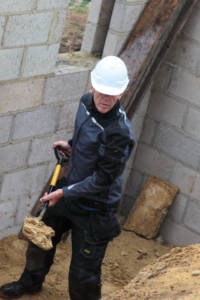
It might seem a little early to be thinking about winter and I for one keep my shorts on until October. After that we are on the slippery slope into the cold and damp that has become the iconic image of this island, and what better for the cold and damp than a winter jacket.
This Dickies Pro jacket uses modern fabric technology to give you warmth without weight and bulk and waterproofing without trapping moisture. The fabric is made up from three layers. The inner layer is the moisture transporter and temperature regulator. The middle layer contains the insulation which is also vapour permeable and the outer layer is a breathable waterproof fabric.
If, like me, you are always losing your van keys and phone then this jacket might at least keep them together. All you then need to do is search through all the various pockets to find them
On the outside of the jacket we have Cordura panels on the high wearing areas and more zip pockets than any jacket I have seen. If, like me, you are always losing your van keys and phone then this jacket might at least keep them together. All you then need to do is search through all the various pockets to find them. No doubt there are people out there who always keep their keys in the same pocket and know exactly where their phone is but, sadly, I am not among them. I guess that makes me a loser.
So that is the pockets covered but how to test this jacket, given that we are not yet in the winter jacket season? Well just as I was writing this I saw that a thunderstorm was due so at least I can look at the waterproof aspect. At the risk of being struck by lightning I ventured out. Now there is ‘waterproof’ and there is ‘water resistant’. This jacket was good for standing in the rain but motorcyclists will tell you that rain can find its way in when you get enough rain and a bit of speed so maybe I should have ran around a bit. I would say that for any reasonable use it will keep you dry and is a lot better than a totally waterproof ‘boil in the bag’ rain suit which just makes you wet from the inside.
I like it but, in terms of fit, I could have done with something a little more body-hugging. Still plenty of room for layers and as my mum used to say “you will grow into it”.



